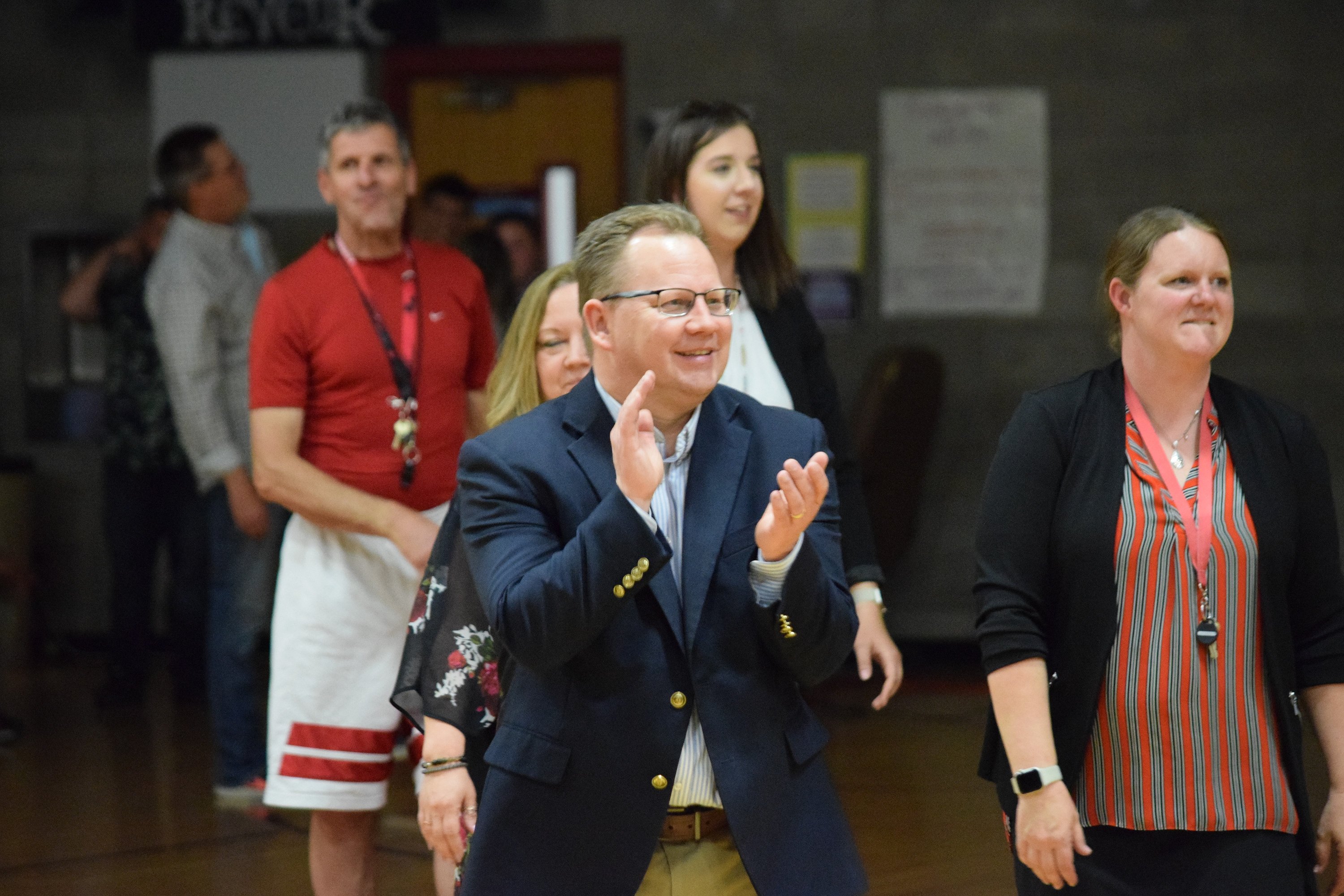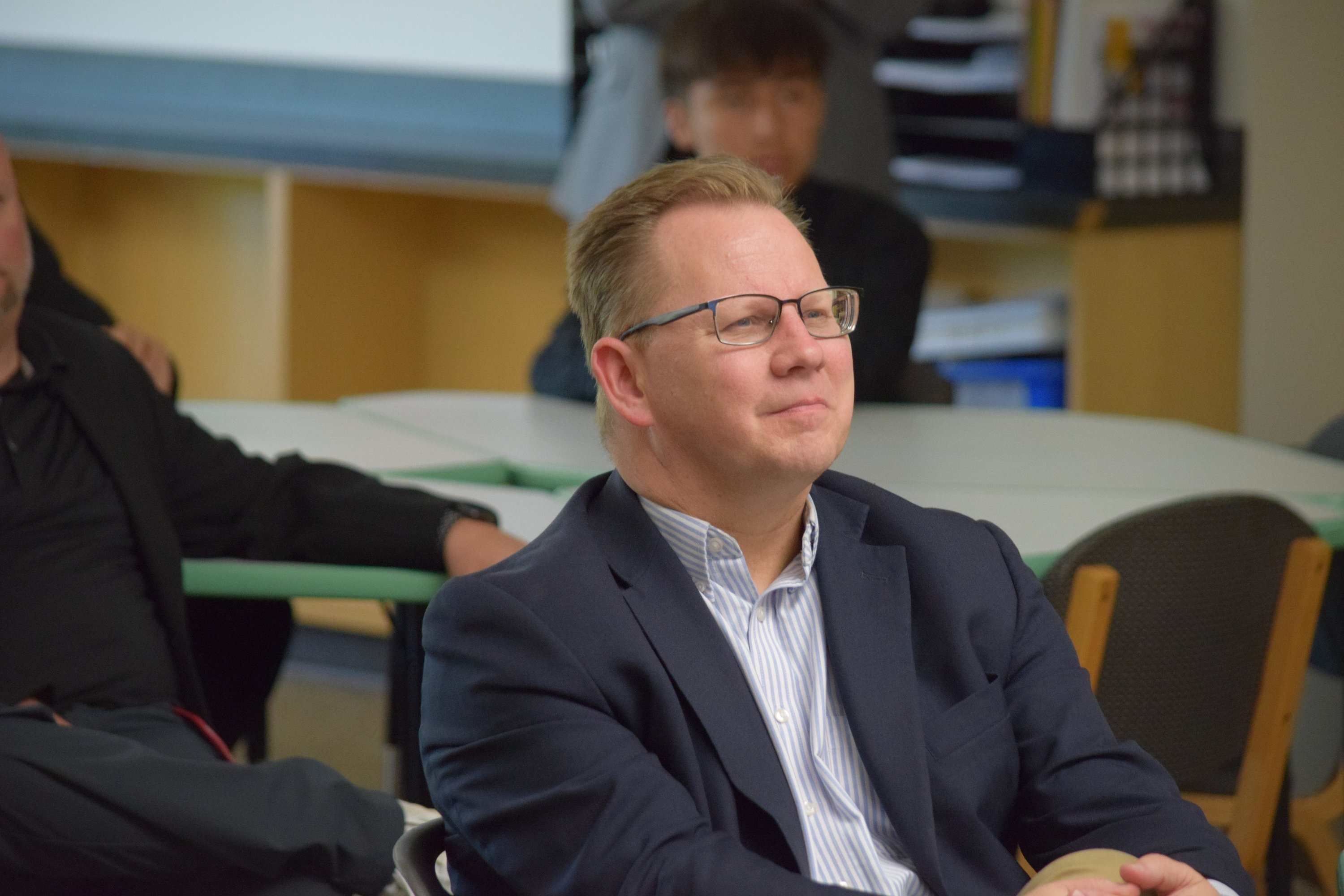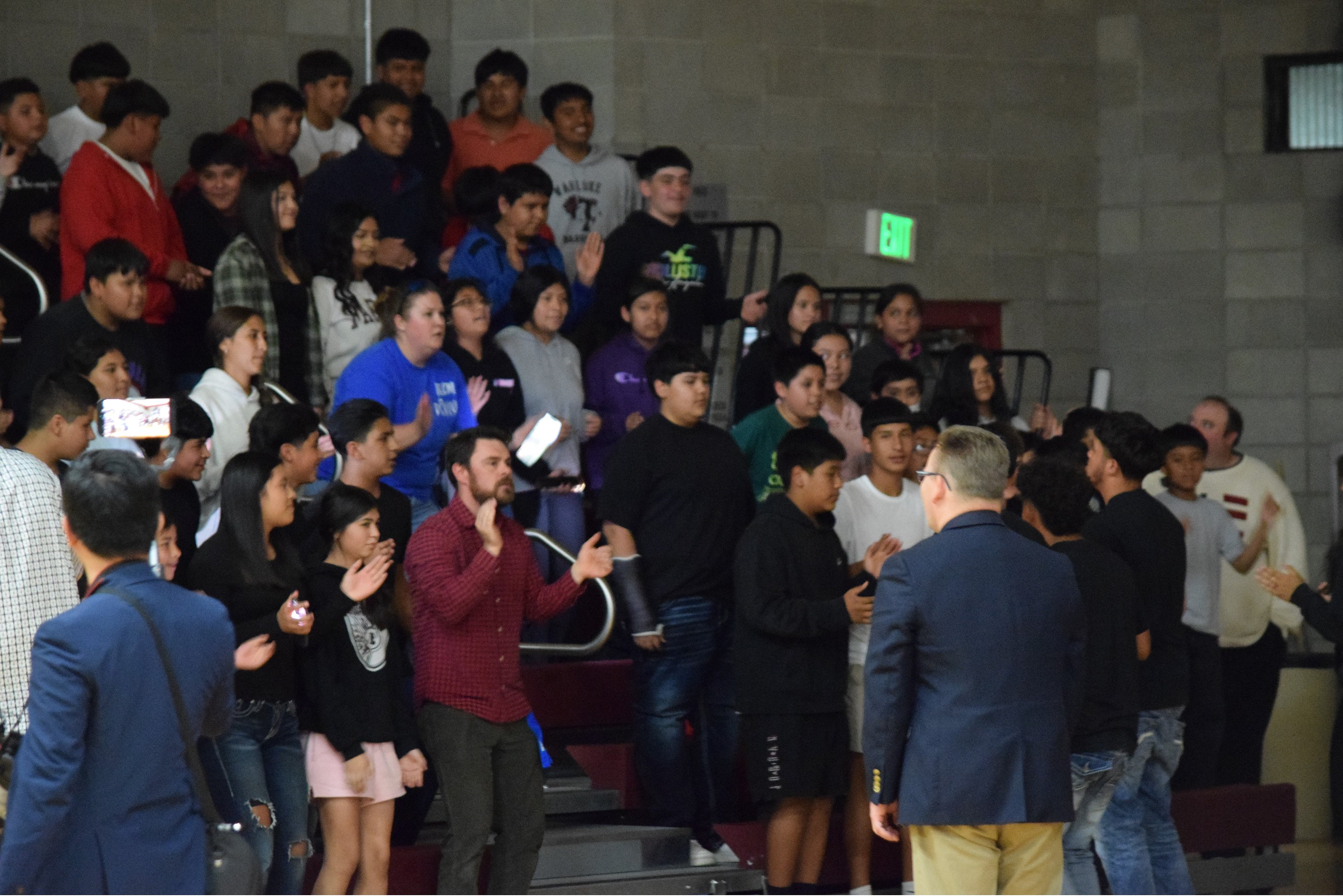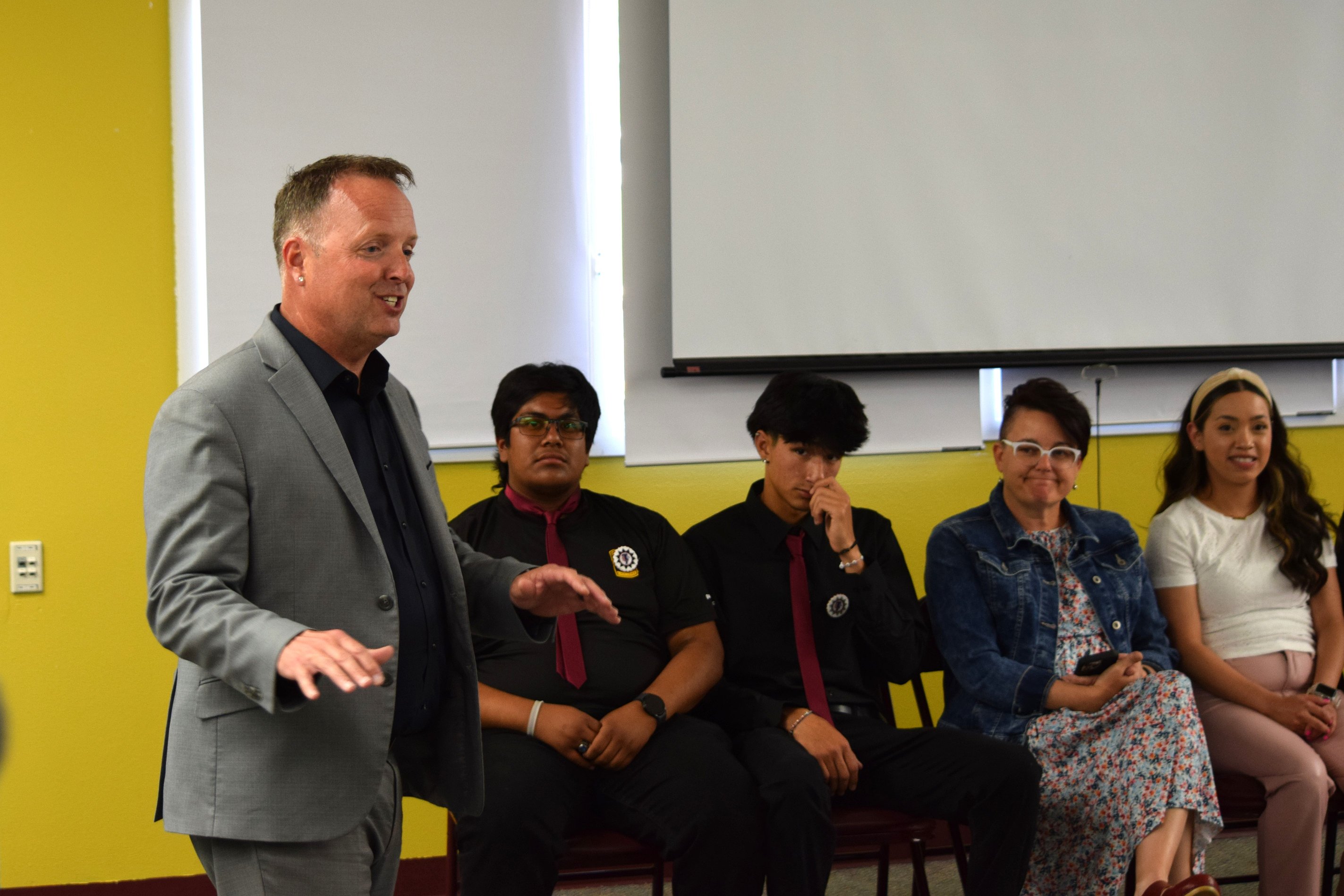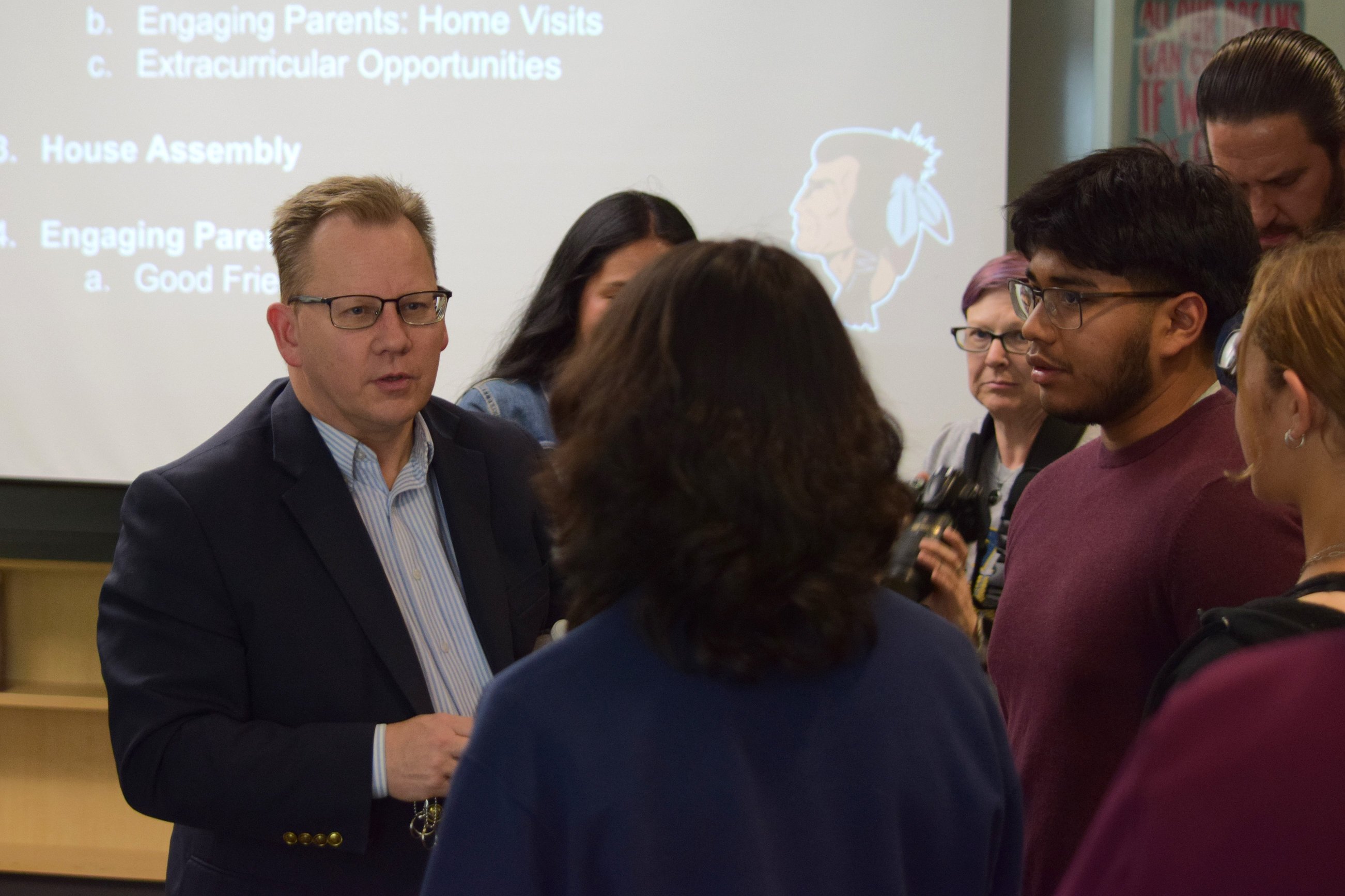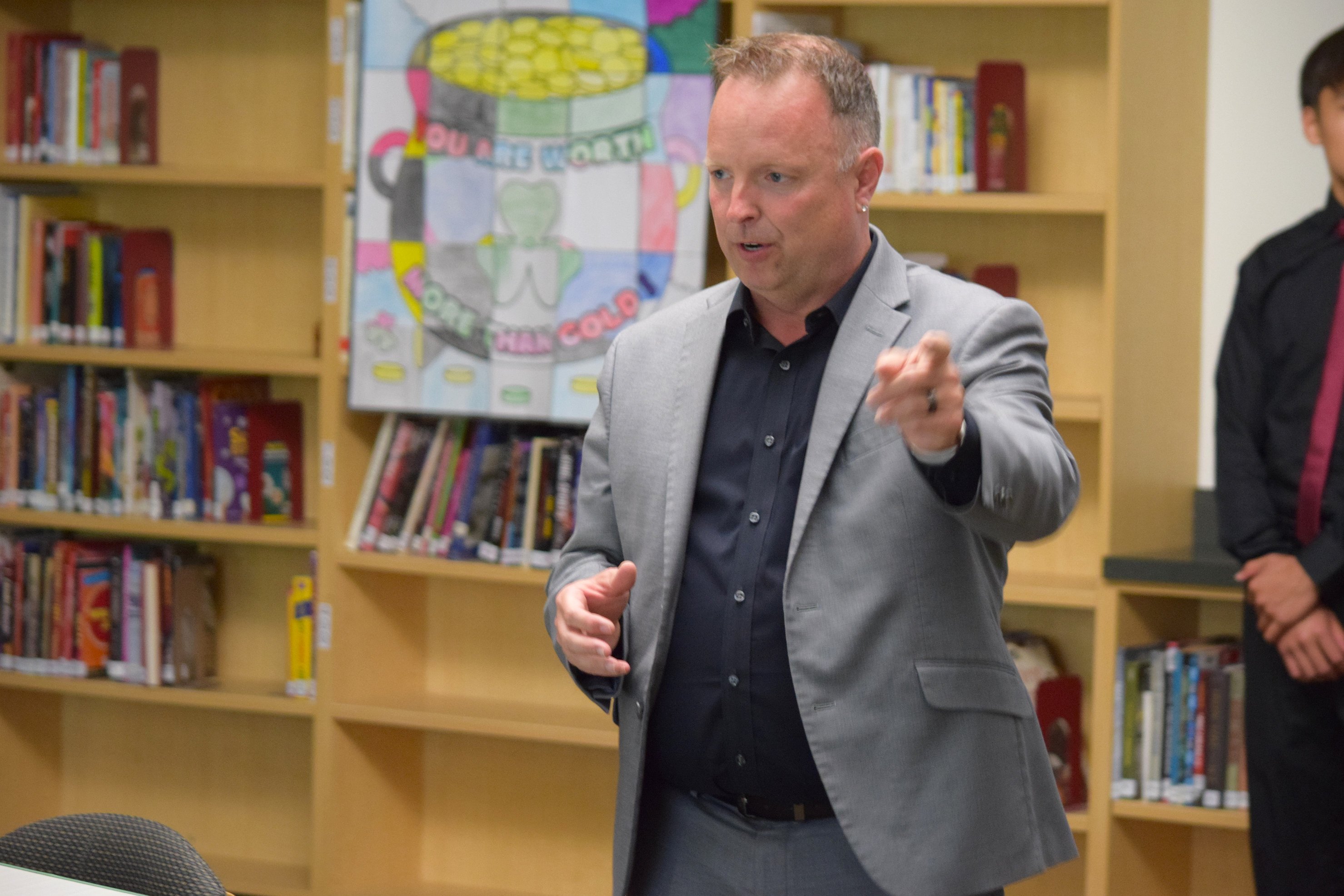Reykdal visits Wahluke
MATTAWA — Washington Superintendent of Public Instruction Chris Reykdal visited Wahluke School District on Thursday afternoon for a tour and various discussions and panels with teachers, administrators and students.
“It's a great visit. I do a lot of these around the state, but it's nice to see everyone's unique community, particularly a school district where your elementary, middle and high (schools) feel like such a family,” Reykdal said in a later interview.
The visit began with Reykdal walking through a crowd of students filling the entrance of Wahluke High School on the way to the school library, where Wahluke Superintendent Andy Harlow and other administrators introduced Reykdal to the district.
“If there's one thing you take away from today that sticks with you is I believe we don't have bad kids here, we've got bored kids,” Harlow said. “So everything you’re going to see today is going to be about parent engagement, student engagement and what we can do with limited amounts of money and resources here at Wahluke to address that problem.”
WHS Principal Cody Marlow and Wahluke Junior High Vice Principal Michael Kantman both said Mattawa being located about an hour away from many other cities and amenities makes extracurricular activities more difficult.
“We are at a disadvantage because of our location,” Kantman said. “Our kids, they’re behind the eight ball and we need some help from the state.”
During the introduction, Harlow talked about Wahluke’s lack of funding.
“A national study came out this past year that we had a chance to be part of, and what we found is … we are in the lowest 100 schools (for) funding across America,” he said.
In addition to the tour and visiting a WJH assembly, Reykdal also met with a panel of Wahluke students, school staff and community members to discuss the importance and impact of extracurricular activities such as sports or Wahluke’s soft skills competition the Amazing Shake in helping students avoid bad behavior and improve in academics.
“What we know more and more about young people is learning the math or the science or the reading, the content comes alive when they have a real sense of who they are and a real want to be in school,” Reykdal said. “So this real push that we've had for more social-emotional learning and sort of building good human beings, it makes the learning more powerful.”
Harlow explained some of the basic ideas of the district’s proposal to Reykdal in utilizing minimal funding to amplify certain extracurricular activities.
“We wonder if we can do things like the Intensive Tutoring Grant that gave us about $200,000, but it's very, very focused on how you can use it,” he said. “We have some really creative ways that we would like to use that to increase participation and still be able to show accountability for student growth. We believe busy kids, kids in our programs, will result in significant reductions in student behavior issues and hopefully academics going up as well.”
Harlow also talked about improving student skills.
“We’re going to talk to you a lot today about soft skill development,” Harlow said. “That's our (Future Farmers of America), our (Career and Technical Education), our robotics, the Amazing Shake, all of those things … It is an expectation that at some point everywhere in the community this will happen, not just here at Wahluke, but we're partnering now with the Chamber of Commerce and going into businesses as well, so (we’re) excited for the potential of that.”
In an interview, Reykdal said Wahluke’s lack of funding and the district’s recent levy failure and subsequent challenges.
“We still have about 17% of our school budgets on average subject to levees, so when you don't pass a levy in this state, it's a real hit," he said.
Levies are an important complement to state and federal funding, Reykdal said.
“They truly are enrichment levies. So the state's going to take care of the basics, but it's a very basic approach,” he said. “The state Supreme Court clearly told the legislature to cover the basics, but if you want those extracurricular things, if you want those after-school programs, if you want those camps, and you want to close the gap for students who lose some momentum during the summer, for example, or over a break, those things are absolutely enrichment and that's where the community can step in.”
Reykdal said smaller districts like Wahluke are unique and have benefits despite the lack of funding.
“What I always love about districts of this size and even smaller is how much they think about the integration of pre-school all the way to post-secondary,” he said. “They really think about these kids from start to finish. That's my takeaway in Wahluke, that sense of family, and the leadership here is really trying to build that connection.”
Gabriel Davis may be reached at [email protected].








